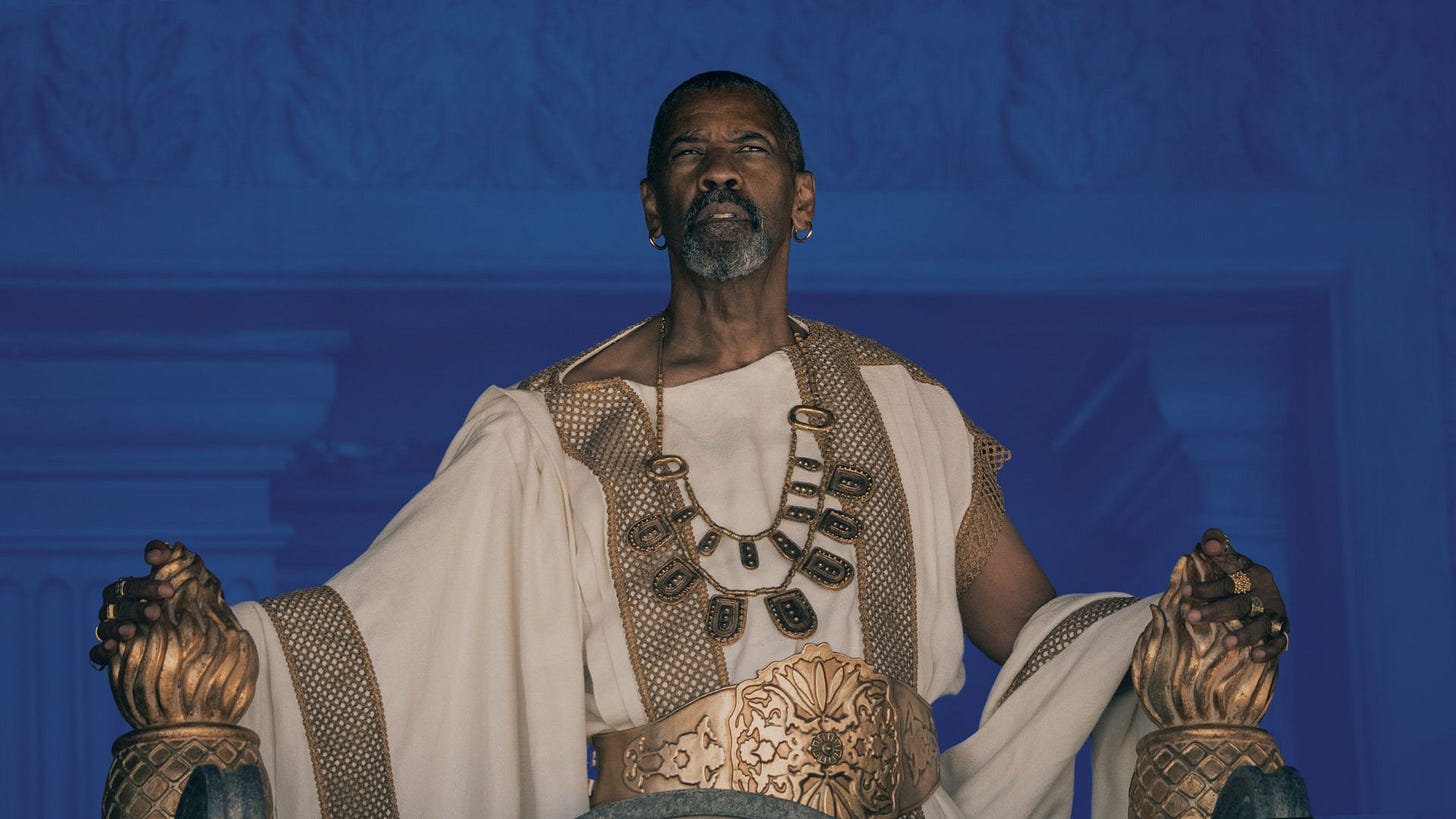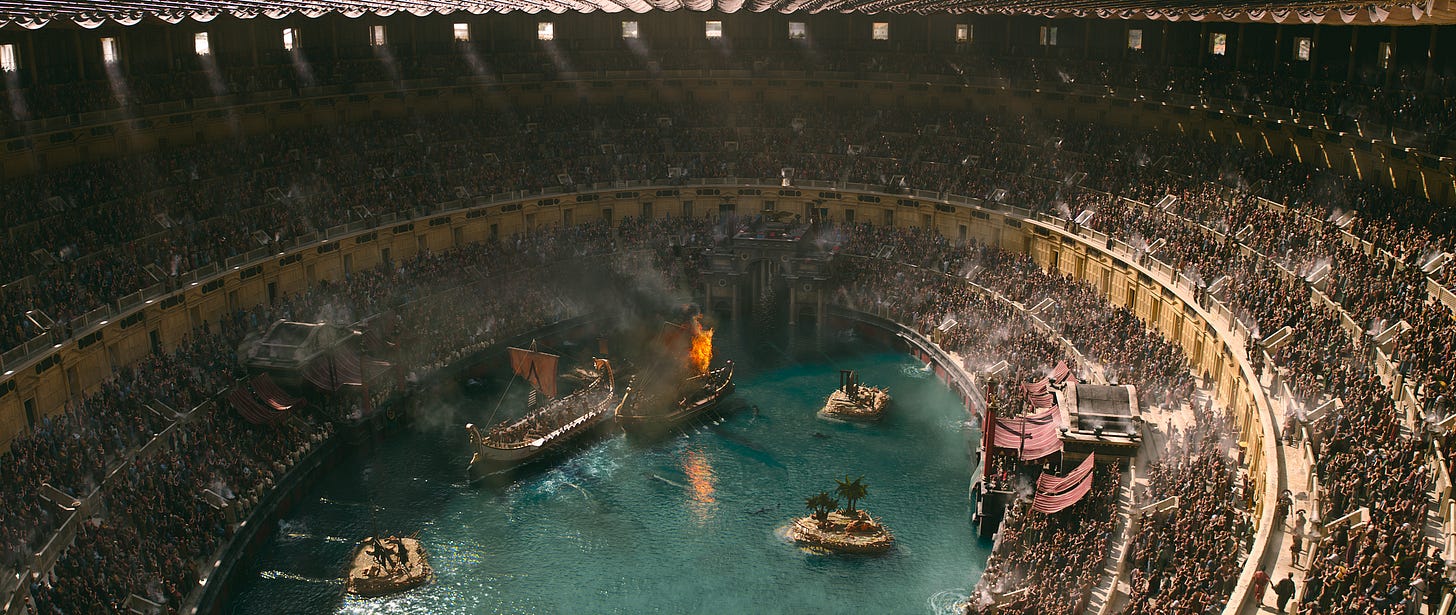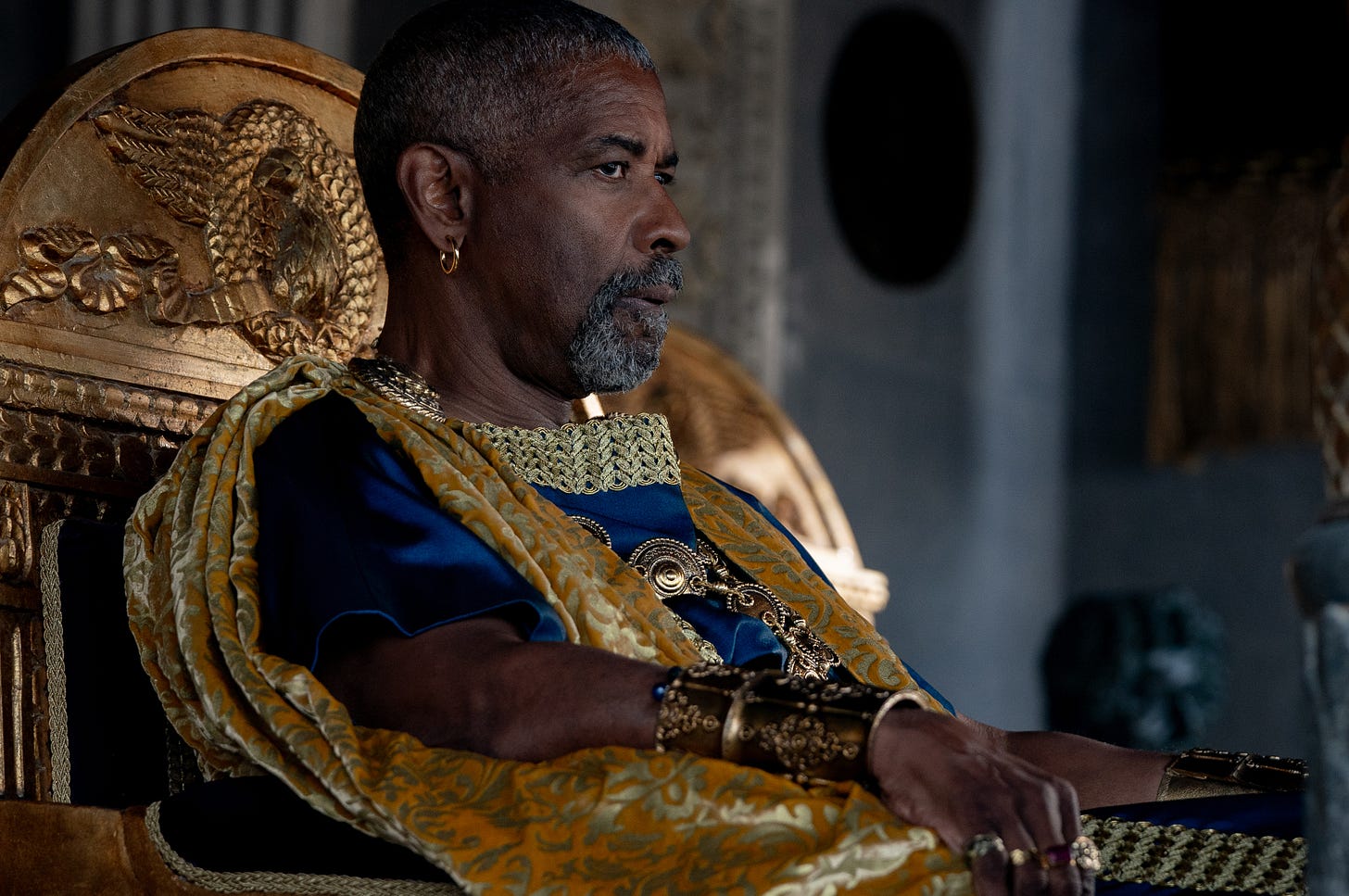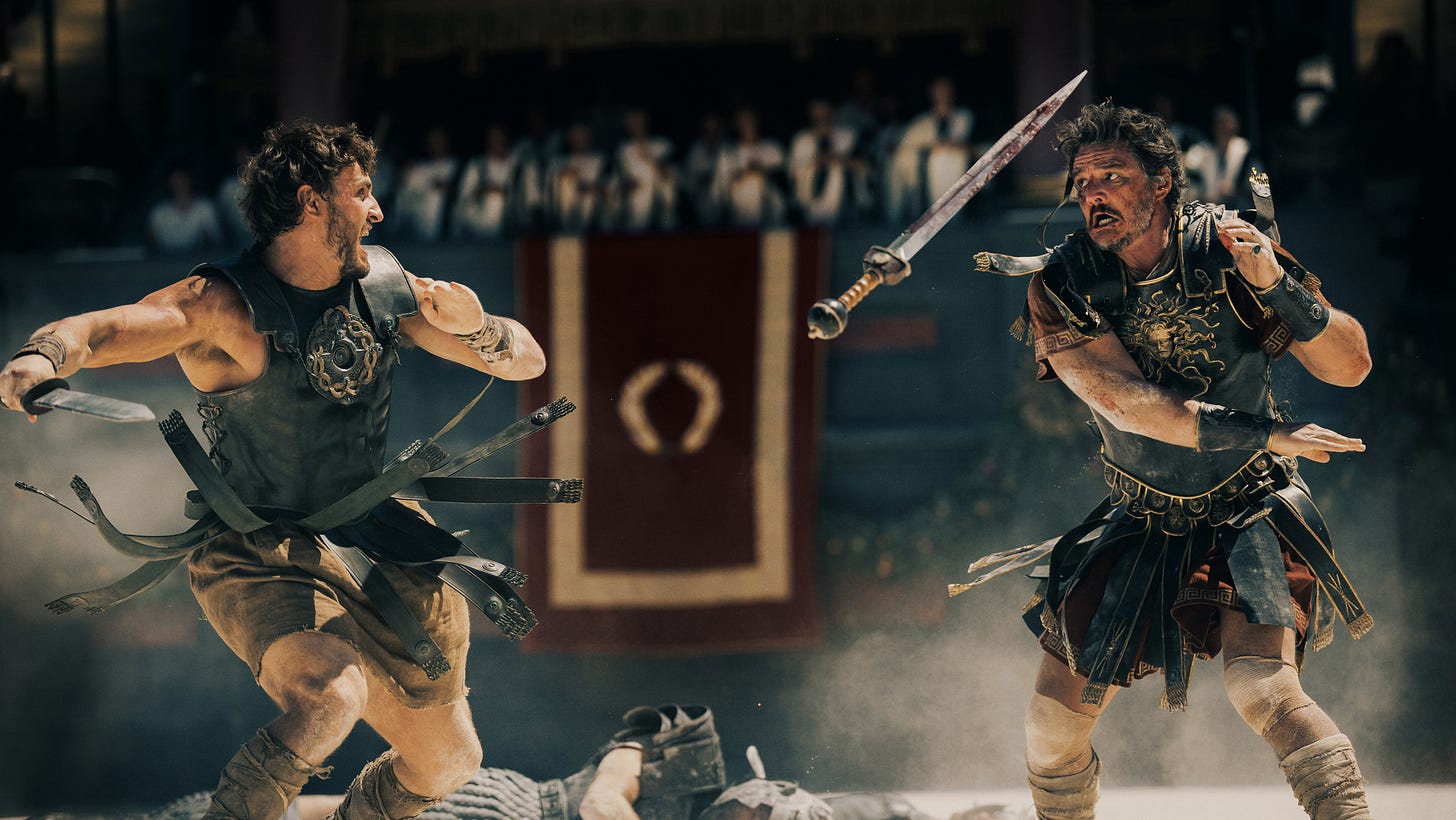Gladiator II Is a Thought-Provoking Sequel
The gates of hell are open night and day...
From legendary director Ridley Scott, Gladiator II continues the epic saga of power, intrigue, and vengeance set in Ancient Rome. Years after witnessing the death of the revered hero Maximus at the hands of his uncle, Lucius (Paul Mescal) is forced to enter the Colosseum after his home is conquered by the tyrannical Emperors who now lead Rome with an iron fist. With rage in his heart and the future of the Empire at stake, Lucius must look to his past to find strength and honor to return the glory of Rome to its people.
Early in Gladiator II, our protagonist Lucius (Paul Mescal) quotes Virgil to the emperors of Rome: “The gates of hell are open night and day; Smooth the descent, and easy is the way: But to come back from hell and view the cheerful skies, In this the task and mighty labor lies.”
The quote is quite the funny nod for any film lovers who may remember the outlandish scrapped pitch for a Gladiator sequel, with Russell Crowe’s Maximus coming back from the dead to fight Jesus (no, I’m not kidding).
But more importantly, Ridley Scott centers nearly every aspect of his Gladiator sequel around this quote.
Much like Maximus’ visions of the wheat field in the original film, Lucius has a recurring vision on the shores of purgatory, watching a loved one being ferried to the afterlife. He’s standing at the “gates of hell,” seemingly caught between death and life, the past and the future, fury and peace.
Similarly, Rome itself is at the “gates of hell.” Marcus Aurelius’ dream of a free nation is long forgotten, with twin emperors that are hungry for power and indifferent to the needs of their people. The empire is rotting, its smooth descent into destruction on full display in nearly every scene. Is the dream of a free Rome still possible? Can the people come back from hell and view the cheerful skies?
Gladiator II thrives as both a sequel and a standalone film in asking and answering these questions.
Admittedly, the film’s slow start had me worried. Scott’s action direction is never in question. His knack for epic filmmaking is on full display in the opening battle where the Roman army conquers Numidia, the city in which Lucius lives under the alias of “Hanno.” Lucius is taken as a prisoner of war and sold into slavery as a gladiator, and at this point viewers like me may begin to wonder: is Gladiator II just a lesser rehash of the original film?
But my fears were quickly proven wrong. As the story unfolds, it evolves into something more grand, ambitious, and timely than I’d ever expected. While perhaps lacking the intimacy and interiority present in Gladiator, the sequel chooses to further examine the system that allows such atrocities as killing for sport. “Is this how Rome treats its heroes?” Lucius asks of the crowd, going on to question what makes them think they as citizens will be treated any better.
While the story and themes of Gladiator II are undoubtedly engaging, the film's true standout is Denzel Washington, whose magnetic presence commands attention to an almost distracting degree. With subtle facial expressions that transform entire scenes and line deliveries that defy expectation (the way he says “politics” will forever be seared into my brain), Washington captivates at every turn. His impact is further amplified by the fact that he plays the film's most compelling character, Macrinus, a former slave turned power-hungry slaveowner. His character grows in importance as the film progresses, offering a fascinating contrast in perspective to Lucius.
While Washington steals the show, the rest of the cast is commendable. Paul Mescal is appropriately stoic as Lucius. He may lack the screen presence of Russell Crowe, but he does what the role asks of him. Pedro Pascal is similarly given little to work with, but makes good use of his time. And Connie Nielsen returns as Lucilla (Lucius’ mother), given a larger and more crucial role in the sequel and taking full advantage of her added importance.
That said, the film has its imperfections. The first Gladiator was, frankly, lightning in a bottle, and it’s tough to recapture that magic twice. Whether through occasionally spotty CGI, less dynamic characters, or stagnant editing decisions, the sequel is all-too-often missing the “spark” that made the original so special. And while Harry Gregson-Williams does a commendable job with the Gladiator II’s score, the film sorely misses Hans Zimmer and Lisa Gerrard, who brought life and emotion to the first film in irreplaceable ways. The occasional inclusion of Zimmer’s themes only succeeds in reminding viewers of the brilliance of his Gladiator score.
By the film’s climax, we’re left with the poetic question that Lucius posed early on. How does one “come back from hell and view the cheerful skies?” It’s a matter of identity. Lucius has cast aside his Roman identity at the film’s start, and the Roman people have all but forgotten the dream of a free country. It’s only by embracing his identity as the “Prince of Rome” that Lucius can find inner peace. And he must then implore the Roman people to choose freedom and no longer live as slaves to fear and tyranny.
Lucius' journey resonated deeply with me as a Christian. His journey is not just a battle for Rome’s future but a symbolic return from the gates of hell, a triumph made possible through the discovery of purpose and the courage to fight for a vision greater than himself. Jesus reminds believers in Matthew 16:18 that "the gates of hell will not overcome" His church. And our task and mighty labor lies in following Christ and spreading this news to others.
"The Spirit of the Sovereign Lord is on me, because the Lord has anointed me to proclaim good news to the poor. He has sent me to bind up the brokenhearted, to proclaim freedom for the captives and release from darkness for the prisoners."
- Isaiah 61:1
Ultimately, Gladiator II succeeds in continuing the epic story of its predecessor while carving its own path as a thought-provoking and visually striking sequel. Though not without its flaws, the film’s ambition and thematic depth—anchored by Denzel Washington’s captivating performance—make it a compelling watch. As the credits rolled, I found myself reflecting less on the imperfections and more on the emotional resonance and timeless questions the film explores. For that alone, I count Gladiator II as a worthy sequel.
★★★★☆ | Watch now in theaters





